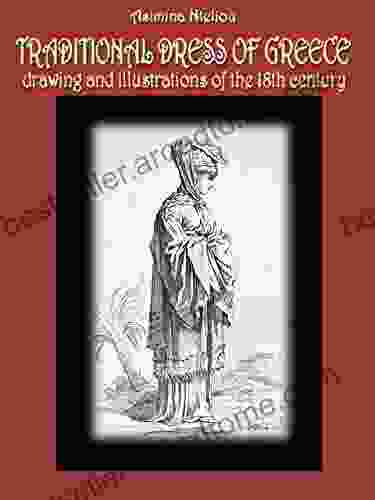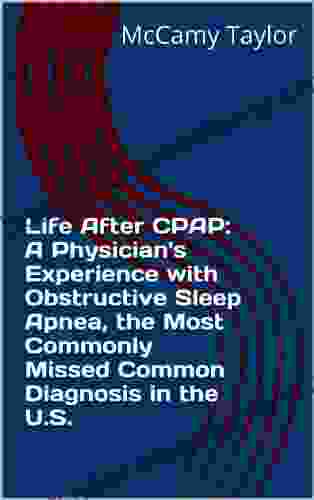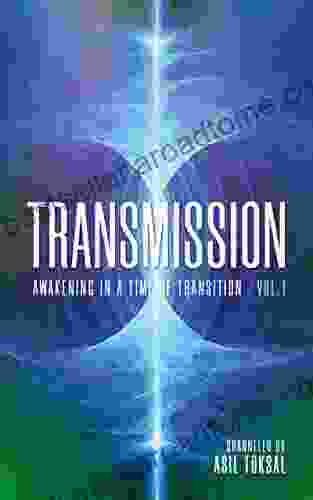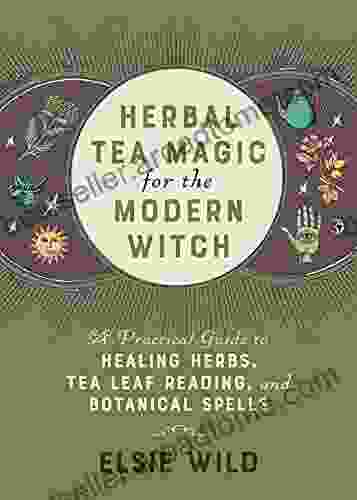Unleashing Your Musical Potential: Overcoming the Psychology of Music Performance Anxiety

The stage is set, the audience is waiting with bated breath, and your heart pounds in your chest. It's a moment that can both excite and terrify musicians of all levels. This debilitating experience, known as music performance anxiety (MPA),affects countless performers, hindering their ability to fully express themselves through their music. However, understanding the psychological mechanisms underlying MPA can empower musicians to conquer their fears and unlock their true potential.
Understanding Music Performance Anxiety
MPA is a complex phenomenon that encompasses a range of physical, cognitive, and emotional symptoms. It can manifest in various forms, including:
4.7 out of 5
| Language | : | English |
| File size | : | 10390 KB |
| Text-to-Speech | : | Enabled |
| Screen Reader | : | Supported |
| Enhanced typesetting | : | Enabled |
| Word Wise | : | Enabled |
| Print length | : | 386 pages |
| Lending | : | Enabled |
* Physical symptoms: rapid heartbeat, sweating, trembling, shortness of breath * Cognitive symptoms: negative self-talk, catastrophizing, loss of concentration * Emotional symptoms: fear, anxiety, panic, withdrawal
Understanding the underlying causes of MPA is crucial for developing effective strategies to manage it. These factors can include:
* Personality traits: Perfectionism, self-criticism, and low self-esteem * Environmental factors: Pressure from teachers, peers, or audiences * Past experiences: Negative or traumatic experiences during music performances * Cognitive distortions: Overestimating the probability of failure or underestimating their abilities
The Psychology of Music Performance Anxiety
The psychological processes that contribute to MPA are multifaceted. One key factor is attentional dysregulation, where performers experience difficulty focusing on the present moment and their musical performance. Instead, their minds wander to negative thoughts or focus excessively on potential mistakes. This can lead to a vicious cycle of self-doubt and anxiety, further impairing their ability to perform.
Another contributing factor is self-efficacy beliefs, which refer to an individual's belief in their ability to succeed. Performers with low self-efficacy may doubt their abilities and fear being judged negatively, leading to increased anxiety and impaired performance.
Additionally, physiological arousal plays a significant role in MPA. The physiological responses associated with anxiety, such as increased heart rate and sweating, can exacerbate nervousness and lead to a loss of control during performances.
Overcoming Music Performance Anxiety
While MPA can be a formidable challenge, there are proven strategies that musicians can employ to overcome it and achieve their musical goals. These strategies include:
* Cognitive-behavioral therapy (CBT): CBT focuses on changing negative thought patterns and beliefs that contribute to anxiety. By identifying and challenging these distortions, performers can shift their mindset towards a more positive and self-supportive outlook. * Mindfulness techniques: Mindfulness involves paying attention to present-moment experiences without judgment. It helps performers train their attentional focus and reduce anxiety by fostering a sense of calm and presence. * Gradual exposure: This involves gradually exposing performers to the situations that trigger their anxiety in a controlled and supportive environment. Over time, they can build tolerance to these situations and develop coping mechanisms. * Relaxation techniques: Techniques such as deep breathing, progressive muscle relaxation, and visualization can help performers reduce physiological arousal and calm their minds before and during performances. * Imagery and mental rehearsal: By vividly imagining themselves performing successfully, performers can build confidence and reduce anxiety levels. This technique also allows them to focus on positive outcomes and practice coping strategies. * Social support: Seeking support from trusted individuals, such as teachers, mentors, or peers, can provide a sense of belonging and validation. Support can help performers feel less isolated in their struggles and encourage them to persevere.
The Role of the "The Psychology of Music Performance Anxiety" Book
The book "The Psychology of Music Performance Anxiety" delves into the complexities of MPA and provides a comprehensive guide to its diagnosis, management, and prevention. This invaluable resource offers:
* A thorough examination of the psychological factors that contribute to MPA * Evidence-based strategies for overcoming MPA * Practical exercises and worksheets to guide readers through the recovery process * Case studies and personal accounts from musicians who have successfully navigated MPA
Music performance anxiety is a prevalent issue that affects musicians of all backgrounds. However, it is important to remember that MPA is not a sign of weakness or incompetence. With a deeper understanding of its psychological origins and effective coping strategies, musicians can overcome these challenges and reach their full potential.
The "The Psychology of Music Performance Anxiety" book serves as an indispensable guide for musicians, educators, and anyone seeking to understand and manage this condition. By embracing the insights and techniques presented within its pages, performers can break free from the chains of anxiety and unleash their musical brilliance upon the world.
Call to Action
Are you ready to conquer music performance anxiety and ignite your musical potential? Free Download your copy of "The Psychology of Music Performance Anxiety" today and embark on a journey towards musical freedom and excellence.
4.7 out of 5
| Language | : | English |
| File size | : | 10390 KB |
| Text-to-Speech | : | Enabled |
| Screen Reader | : | Supported |
| Enhanced typesetting | : | Enabled |
| Word Wise | : | Enabled |
| Print length | : | 386 pages |
| Lending | : | Enabled |
Do you want to contribute by writing guest posts on this blog?
Please contact us and send us a resume of previous articles that you have written.
 Book
Book Novel
Novel Page
Page Chapter
Chapter Text
Text Story
Story Genre
Genre Reader
Reader Library
Library Paperback
Paperback E-book
E-book Magazine
Magazine Newspaper
Newspaper Paragraph
Paragraph Sentence
Sentence Bookmark
Bookmark Shelf
Shelf Glossary
Glossary Bibliography
Bibliography Foreword
Foreword Preface
Preface Synopsis
Synopsis Annotation
Annotation Footnote
Footnote Manuscript
Manuscript Scroll
Scroll Codex
Codex Tome
Tome Bestseller
Bestseller Classics
Classics Library card
Library card Narrative
Narrative Biography
Biography Autobiography
Autobiography Memoir
Memoir Reference
Reference Encyclopedia
Encyclopedia Anne Davison
Anne Davison Arlene Wright
Arlene Wright Tonia Browne
Tonia Browne Anne Massey
Anne Massey Anne Myers
Anne Myers T S Publications
T S Publications Kimberly Tilley
Kimberly Tilley Anne E Neimark
Anne E Neimark Anne Angelone
Anne Angelone Jo Witek
Jo Witek Annaliese Lemmon
Annaliese Lemmon Chigozie Obioma
Chigozie Obioma Rosy Fenwicke
Rosy Fenwicke David Mendel
David Mendel Anthony Ekanem
Anthony Ekanem Anne Speckhard
Anne Speckhard Arpita Mukherjee
Arpita Mukherjee Richard V Simpson
Richard V Simpson Ashley Hall
Ashley Hall Stephen Grace
Stephen Grace
Light bulbAdvertise smarter! Our strategic ad space ensures maximum exposure. Reserve your spot today!

 Jonathan FranzenUnlocking the World of Math with "Look Grandma Ni Elisi Storytelling Math"
Jonathan FranzenUnlocking the World of Math with "Look Grandma Ni Elisi Storytelling Math"
 Everett BellDerivational Syntax For Information Structure: A Linguistic Odyssey into the...
Everett BellDerivational Syntax For Information Structure: A Linguistic Odyssey into the... Brennan BlairFollow ·5.8k
Brennan BlairFollow ·5.8k Stanley BellFollow ·14.9k
Stanley BellFollow ·14.9k Ray BlairFollow ·4.5k
Ray BlairFollow ·4.5k Jessie CoxFollow ·6.3k
Jessie CoxFollow ·6.3k Ashton ReedFollow ·5.5k
Ashton ReedFollow ·5.5k Dominic SimmonsFollow ·5.4k
Dominic SimmonsFollow ·5.4k Pat MitchellFollow ·19.3k
Pat MitchellFollow ·19.3k Quentin PowellFollow ·14k
Quentin PowellFollow ·14k

 Jeremy Cook
Jeremy CookDrawing and Illustrations of the 18th Century: A Journey...
Step into the...

 Easton Powell
Easton PowellPhysician Experience With Obstructive Sleep Apnea: The...
Obstructive sleep apnea (OSA) is a common...

 Cruz Simmons
Cruz SimmonsUnlock Your Inner Healer: The Transformative Power of...
Are you ready to embark on a profound healing...

 Paulo Coelho
Paulo CoelhoTransmission Awakening In Time Of Transition Vol. 1: A...
Transmission Awakening...
4.7 out of 5
| Language | : | English |
| File size | : | 10390 KB |
| Text-to-Speech | : | Enabled |
| Screen Reader | : | Supported |
| Enhanced typesetting | : | Enabled |
| Word Wise | : | Enabled |
| Print length | : | 386 pages |
| Lending | : | Enabled |












